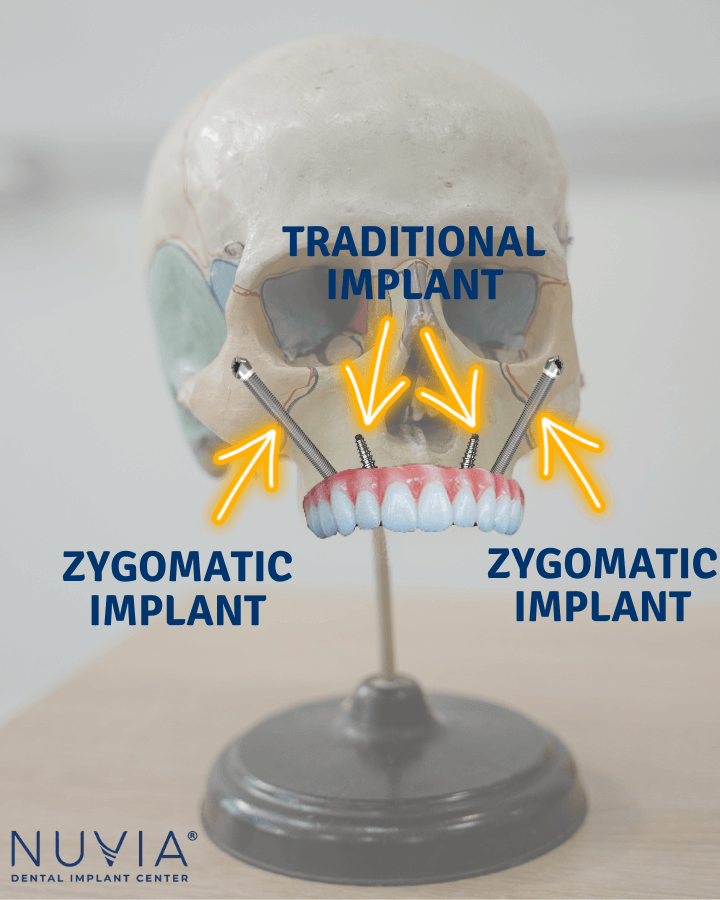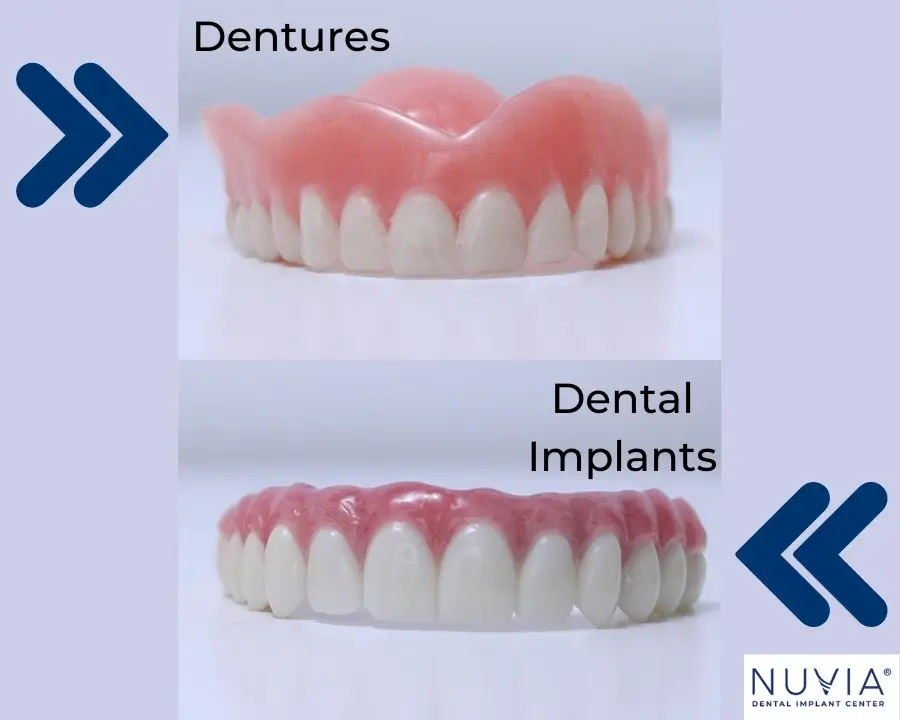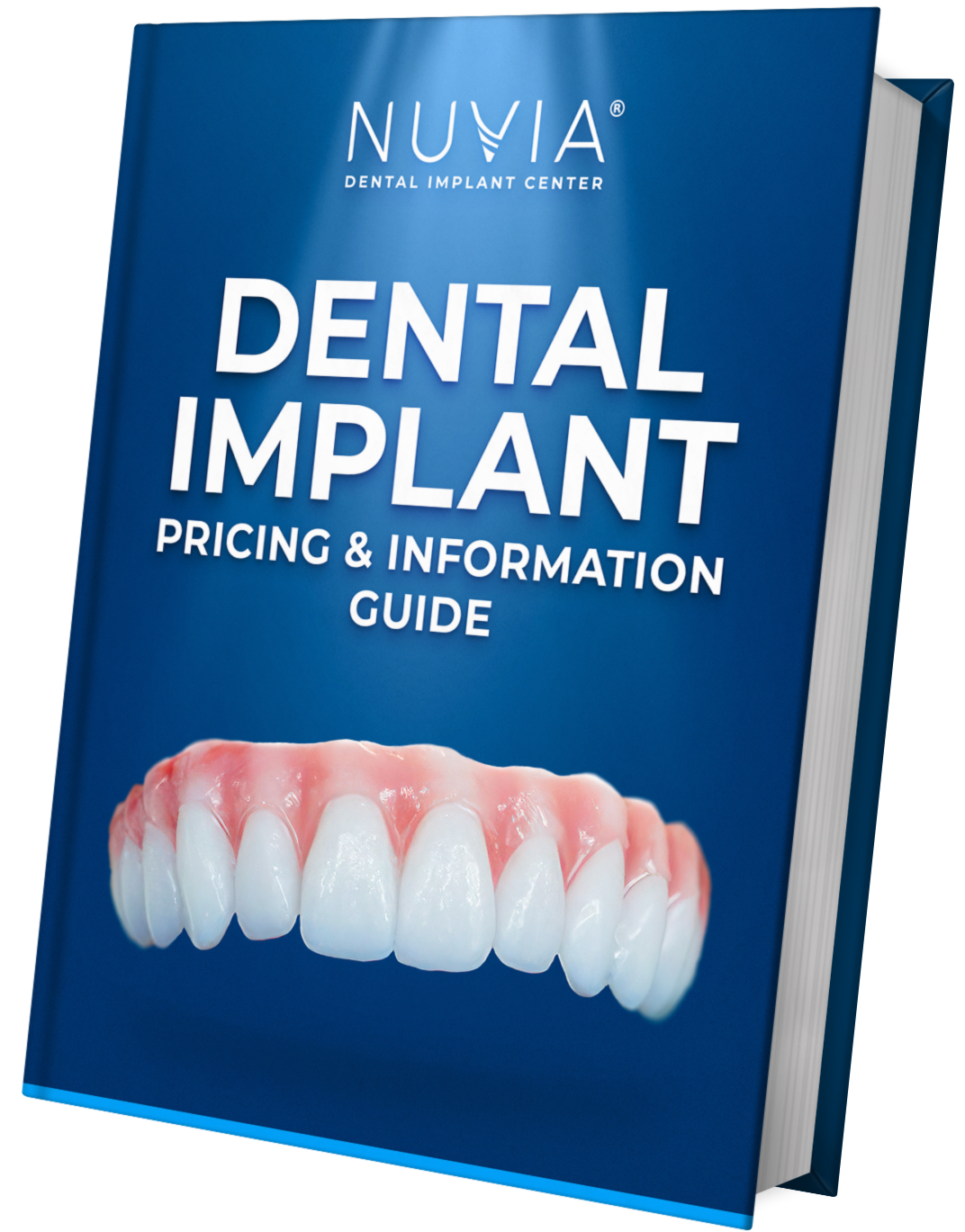
15 Things about Zygomatic Dental Implants
Find Out If You May Be EligibleFor Permanent Teeth in 24 Hours
Get The Dental Implant Cost Guide

Ever heard of zygomatic dental implants? If you're struggling with extreme bone loss in your upper jaw, this could be the game-changing solution you've been waiting for. Dive into this complete guide to discover the 15 essential things you need to know about this revolutionary dental treatment. From how it's different from traditional implants to what you can eat post-surgery, we've got all your burning questions covered. Don't miss out; your dream smile could be just an article away!
Question 15: Why would I need zygomatic dental implants?
Answer: Zygomatic dental implants are most commonly indicated for patients with extreme bone loss in the upper jaw (maxilla). This often occurs in long-term denture wearers who have been toothless (edentulous) for many years and no longer have enough bone to support traditional dental implants.

Question 14: How are Zygomatic Dental Implant Different from Normal Dental Implants?
Answer: The primary differences between zygomatic and traditional dental implant placement are the type of implant used and the angle at which they are placed. Zygomatic dental implants are much longer and are angled through the remaining maxilla bone into the zygomatic (cheek) bone.

Traditional upper dental implants are placed in the maxilla bone only.

Question 13: How long does the procedure for zygomatic dental implants take at Nuvia Dental Implant Center?
Answer: Zygomatic dental implant surgeries at Nuvia Dental Implant Center typically take anywhere from 3-5 hours for placement. The exact timing depends on several factors, such as the need for cleaning the bone and tissues due to decay or the removal of remaining teeth.
Question 12: What is the recovery process like after receiving zygomatic dental implants?
Answer: The recovery process for zygomatic dental implants is relatively similar to that of traditional dental implants. However, patients may experience more bruising due to the more invasive nature of the surgery, which will typically subside within a few days to a few weeks. Remember to use your ice packs to help minimize the swelling and bruising after surgery!
Question 11: Are there any special care instructions for patients who have received zygomatic dental implants?
Answer: The care instructions for patients with zygomatic dental implants are the same as those for traditional dental implant placement. Watch the video below to learn more about how to care for your dental implants.
Question 10: Can zygomatic dental implants be used in combination with traditional dental implants?
Answer: Yes, zygomatic dental implants can be used in combination with traditional dental implants.

Question 9: How do zygomatic dental implants affect a patient's facial appearance?
Answer: Zygomatic dental implants are designed to provide support for replacement teeth in patients with significant bone loss in the upper jaw. These implants do not alter a patient's facial appearance significantly, but they can help restore a natural-looking smile and improve overall facial aesthetics.

Question 8: If I have bone loss should I just ask for Zygomatic Dental Implants?
Answer: While zygomatic dental implants can be an excellent option for many patients with severe bone loss in the upper jaw, they may not be suitable for everyone. It is crucial to consult with an experienced dental professional at Nuvia Dental Implant Center to determine the best treatment plan for your unique situation.
Question 7: How Much Do Zygomatic Dental Implants Cost?
Answer: The cost of zygomatic dental implants can be higher than traditional dental implants due to the specialized nature of the procedure and the limited number of surgeons who can perform it. However, the overall cost and treatment timeline should be weighed against factors such as patient comfort, recovery time, and long-term success rates when considering the best course of action. To read a full cost breakdown of dental implants read the Detailed Guide to Dental Implant Cost and Information.
Question 6: How long do zygomatic dental implants last?
Answer: With proper care and maintenance, zygomatic dental implants can last a very long time. Factors that can affect the longevity of the implants include oral hygiene, overall health, and lifestyle choices such as smoking or excessive alcohol consumption. Regular dental checkups and professional cleanings are essential to ensure the continued success of the implants.
Question 5: I Have Medical Conditions and Take Medication, Can I receive zygomatic dental implants?
Answer: Some medical conditions and medications can affect a patient's eligibility for zygomatic dental implants. It is essential to discuss your medical history and current medications with your dental professional at Nuvia Dental Implant Center to determine if zygomatic dental implants are a suitable option for you.
Question 4: What is the process for maintaining zygomatic dental implants, and are there any differences compared to traditional dental implants?
Answer: The maintenance process for zygomatic dental implants is similar to that of traditional dental implants. It includes regular dental checkups, professional dental implant cleanings, and practicing good oral hygiene at home, such as brushing and flossing daily. There are no significant differences in the maintenance process between zygomatic and traditional dental implants.
Question 3: How soon after tooth extraction can zygomatic dental implants be placed?
Answer: The ideal timing for zygomatic dental implant placement after tooth extraction depends on several factors, including the patient's overall oral health and the extent of bone loss in the upper jaw. In some cases, zygomatic dental implants can be placed immediately after tooth extraction, while in other situations, a waiting period may be necessary to allow for healing. Consult with your dental professional at Nuvia Dental Implant Center to determine the best timeline for your specific case.
Zygomatic dental implants provide a remarkable solution for individuals struggling with significant bone loss in the upper jaw. If you have more questions or believe you might be a suitable candidate for zygomatic dental implants, don't hesitate to take our quick 60-second quiz today. Discover whether traditional dental implants or zygomatic dental implants could be the perfect solution to restore your smile and boost your confidence.
Question 2 : What is the zygoma?
Answer: The zygoma is a term used in the medical field to refer to the cheekbone. It's a strong, protruding bone that sits above the maxilla or upper jaw. The zygoma provides a firm foundation for zygomatic dental implants when the maxilla does not have enough bone to support traditional implants.
Question 1: What can I eat after zygomatic dental implant surgery?
Answer: After zygomatic dental implant surgery, it's generally recommended to start with a diet of soft foods and gradually move towards a regular diet as your mouth heals. This might include foods like soups, smoothies, and mashed vegetables in the early stages. However, your doctor will review your needs based on your specific case and provide individualized guidelines for the healing process. Following these dietary guidelines will be crucial for ensuring a successful recovery and long-term success of your zygomatic implants.
Sources
Esposito, M., Worthington, H. V., Thomsen, P., & Coulthard, P. (2003). Interventions for replacing missing teeth: Different types of dental implants. Cochrane Database of Systematic Reviews, (4). doi:10.1002/14651858.CD003815
More Articles Like This one

Don't get Dental Implants without reading this! 🤯

Dental Implants Vs. Dentures - How Implants Can Help






